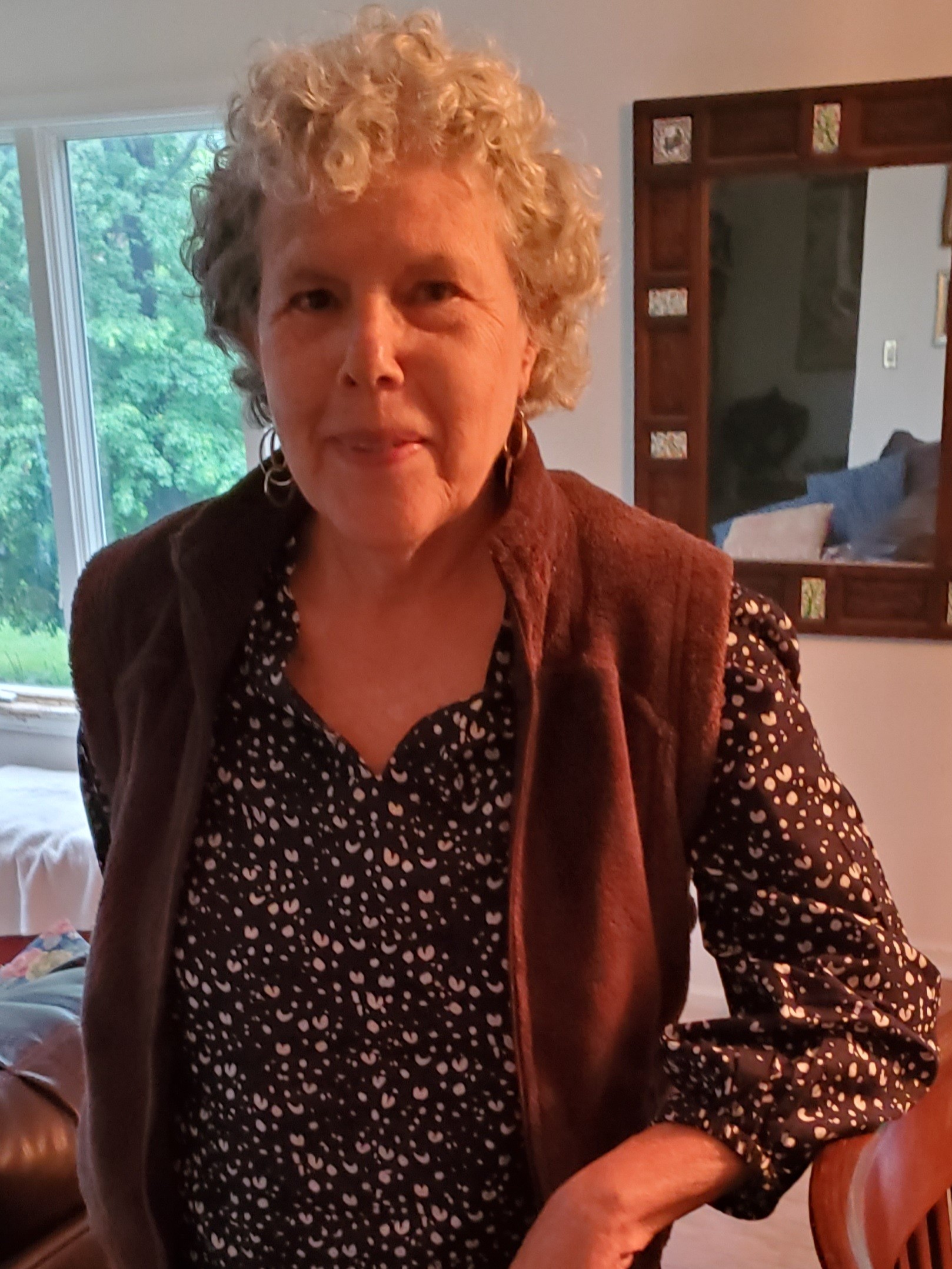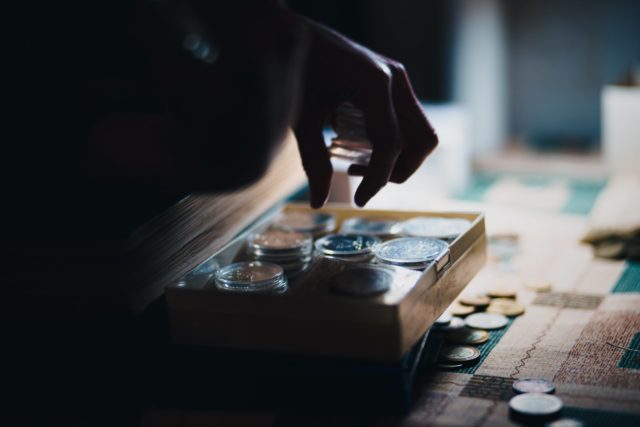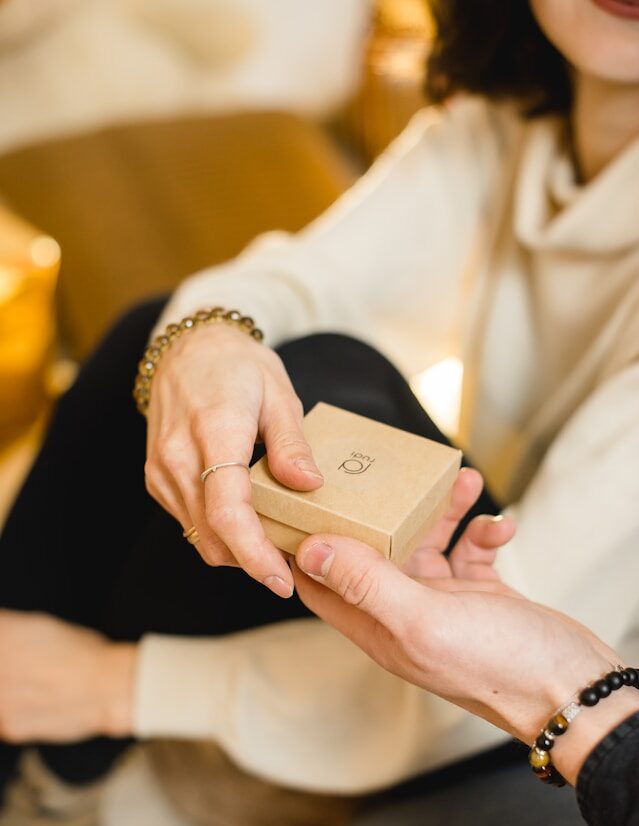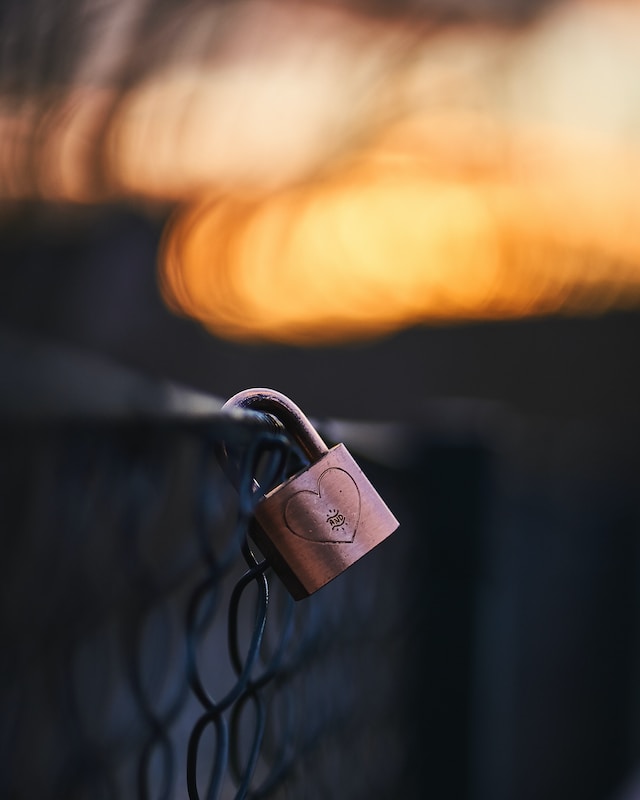The Things He Left Behind
“Wait, did you say you found someone’s ashes?”
That is exactly what my step-daughter called to tell me a day after she’d carted away another carload of her father’s things. I could only imagine what might turn up next.
Ellis’s possessions were everywhere. His collection of masks, purchased during his travels throughout Asia, adorned the walls of our condo. His rugs, carted home from business trips to Iran, carpeted the floors. Then there were the things he’d held onto for decades, belongings that had accompanied him through life in three countries and more than a dozen moves.
His stuff crowded his corner of our bedroom. It weighed down the built-in bookcases so much that the shelves sagged in the middle. It filled every nook in the space that did triple duty as his office, library, and guest room. And still there was more. The overflow—hundreds of miniature liquor bottles, rare coins, yellowed letters, rusty tools, and scores of scratched-up record albums—made it hard to maneuver in our basement storage bin.
Ellis’s pack-rat habit was not a surprise. I’d discovered it the first time I visited his apartment shortly after we began dating in the late ‘90s. In the spare room that served as his Lippman 1 office stood not one or two, but three desks, lined up side by side. All looked weary, as though the mountains of paper piled on them were almost too much to bear.
“Why do you have three desks?” I couldn’t help asking. Ellis shrugged.
“I needed more space.”
Lack of space, in fact, is what kept us apart, at least for a time. Ellis and I were together for eighteen years and married for seven. We didn’t live together for our first decade as a couple, in part because of my concern about room for his stuff. When I moved out of my parents’ home and, later in life, out of the house where I raised my children, I dumped almost all old papers and artifacts, save for a shoebox of kids’ photos and a handful of their grade-school reports.
Years later, when I moved my dad to an assisted living facility, I dumped or gave away almost everything I found in my parents’ house. The two possessions I kept—a large Oriental carpet and an antique credenza I turned into a media center—had adorned all four of my childhood homes. I loved them then. And I cherish them still, even as the now eighty-year-old rug grows threadbare and the credenza’s side molding and handles require glue to keep them in place.
Ellis, on the other hand, never threw anything away. He lugged copper jugs, cut glass bowls, oil paintings, even a pair of Oriental scissors, from China to Canada and across the United States. I had purchased a condo in downtown Montclair, New Jersey, right before he and I met. I loved it too much to think about moving in our early years. I also doubted it could accommodate us both.
Space, however, was not the only reason for our hesitancy. Ellis had been married twice. His second divorce was followed by two live-in relationships. Neither endured, and he feared that if we moved in together ours would end as well. I hadn’t lived with anyone since my divorce, but I, too, had had a couple of failed relationships. In the fifteen years I’d been on my own, I’d gone from searching for the perfect partner to relishing my independence. I hesitated to give it up.
There was also the matter of age. I was fifty when we met. Ellis was sixty-six. What if we moved in together and something happened to him?
Then came the day when something did. A car struck Ellis as he crossed a street, leaving him with a torn rotator cuff and a broken femur. Upon his discharge from the hospital, I brought him to my apartment until he could manage on his own. The lesson—that whether or not we shared a home, I would be there to support him—was not lost on me.
“I can’t keep getting closer to you if we don’t live together,” I told Ellis soon after. “Living apart doesn’t work for me anymore.”
“Yes, it’s time,” he answered. “I’m ready.”
When his lease expired, we agreed, he would move into my apartment. If we couldn’t cope with the crowding, we’d find somewhere else to live.
Weeks ahead of his scheduled move, Ellis began bringing over boxes. Before the moving van, his beloved piano, or he himself arrived, any hopes I had of staying put were dashed. Short of a massive purge on his part, we would need a bigger place. We didn’t have to look far.
Pat, a neighbor I often chatted with in the courtyard between our buildings, announced that he and his wife planned to downsize. Their apartment—an expanded two bedroom—had an extra half bath, a sun parlor, a large entry foyer, a patio, and a garage, as well as bigger bedrooms. Perfect!
We ended up trading places. Pat and his wife rented my apartment and Ellis and I purchased theirs. Everyone was happy except for our mutual internet service provider. For years, a cheery “Hello, Patrick” greeted me every time I landed on the Comcast website.
Even with the additional space, I struggled to rein in Ellis’s sprawl. I tried decorating his office with baskets of various shapes and sizes in a futile attempt to contain his things. When overnight guests were expected, I stuffed wayward papers into big brown bags and hid them beneath the futon. I even resorted to sneaking dusty newspaper clippings and long past-due notices into the trash, swearing all the while that I would never toss anything of import. Still, I had no idea until after his death just how much he’d held onto.
In the seemingly endless sorting that followed, I found every card I’d ever given him, filed alongside a lifetime of notes and cards from each of his children. I also came across the program from a service Ellis and I had co-led more than a decade earlier at the Unitarian fellowship where we met; a sixty-five-year-old letter from the Canadian Consulate, questioning his immigration status shortly after he and his mother moved from Shanghai to Vancouver; and virtually every job performance review he ever received.
The basement bin, which I rarely entered except to fetch my bike for an occasional ride, held more surprises. Ellis’s aging coin collection, which I thought he had long since divested save for a few prized specimens, was everywhere. It took his daughter three carloads to lug it all home.
Then I found the letters, hidden away in a tattered old suitcase. Some, typed on flimsy onionskin paper and neatly folded into envelopes, were addressed to “Dear Lady Love” and dated from the 1950s. They were written, I was relieved to note, not by Ellis but by his father, to a woman he’d admired from afar. He had asked Ellis to try to locate her after he died.
Later I found other letters, written and received by Ellis—lengthy correspondence between him and the two women he’d gone with before me. I knew he wasn’t entirely over either of them when we started dating, so finding that he’d held onto the letters stung.
Ellis never sent me love letters, I thought, breaking down in tears as I shoved them back into their container. A couple of days later I reread the letters, then ripped them to shreds. By then, however, I viewed them more rationally. These were not love letters, I realized, but litanies of complaints. They were un-love letters, if you will, full of statements that started with “You never,” “I wanted,” “You didn’t,” and “You lied.”
He and I didn’t need to write them because we learned to talk candidly early in our relationship. Gone was the false pride, the embarrassment, and the fear of vulnerability that had colored our previous relationships. When either of us felt angry or wounded, we would sit awhile, think it through, and then say, “We need to talk.” Almost always, the conversation ended with soothed feelings and the obligatory joke.
The final joke came last summer. Ellis’s younger daughter, her husband, and I took their boat out on a lake in Maine to dispose of the ashes his older daughter had found. They belonged to Ellis’s old friend Alfred, I was certain. I remembered when Ellis accompanied his buddy’s nephew to a family plot upstate to distribute the ashes and figured he kept the remnants because he’d been loathing to let Alfred go.
As Ellis’s son-in-law prepared to say a few words, his daughter and I inched to the edge of the boat to carry out the dumping. We opened the wrinkled old sack, then stared in surprise. “Hold on!” I shouted. “This doesn’t look like any ashes I’ve ever seen.” The contents were more like sand, a pale beige peppered with dark flecks of something we couldn’t identify.
When images of human ashes on the Internet failed to yield anything conclusive, his daughter, a scientist, decided to take a sample to a testing lab. A week later, she sent me what is likely the strangest text message I will ever receive:
“Alfred = silver,” it read.
Silver? Hmm. That explains why the “ashes” were mixed in with his coin collection, I thought gleefully, grateful that even in death, Ellis could still make me laugh.

Helen Lippman is a semi-retired writer based in Montclair, NJ. After a career in medical publishing, she began writing personal essays and travel pieces. Lippman is currently working on a book about little-known events in Newark, where she was born and raised, for The History Press.



